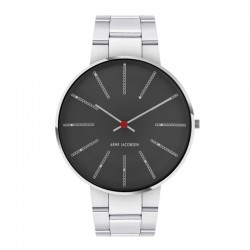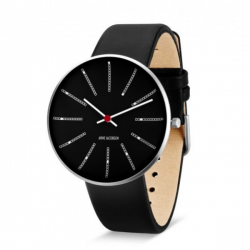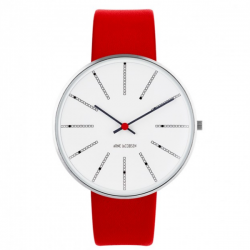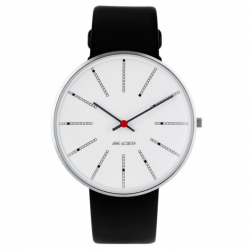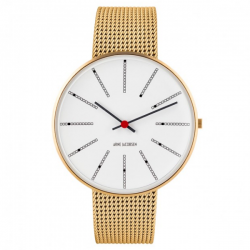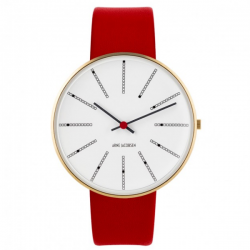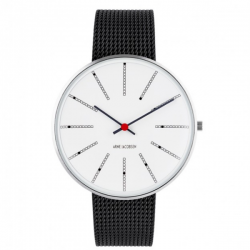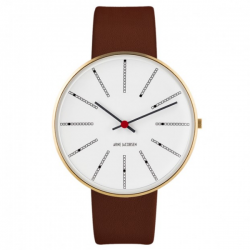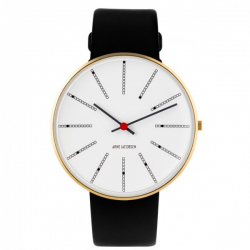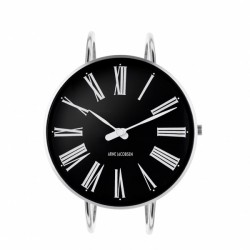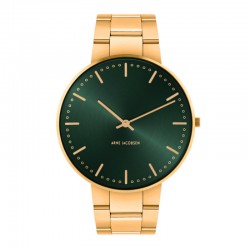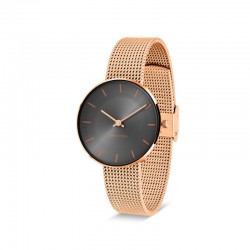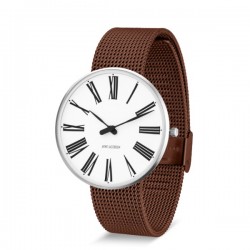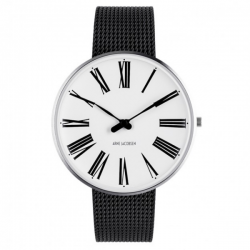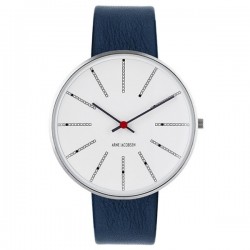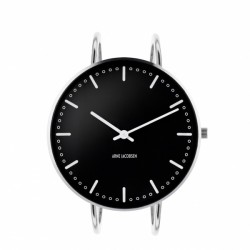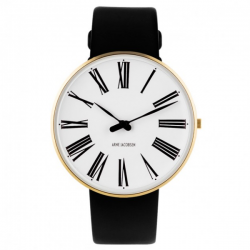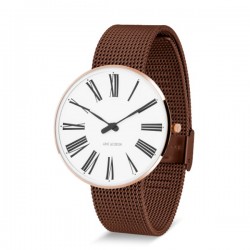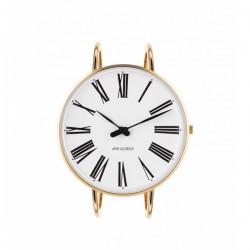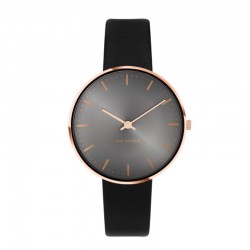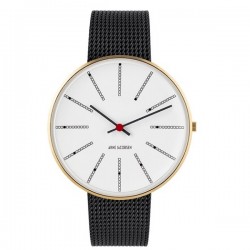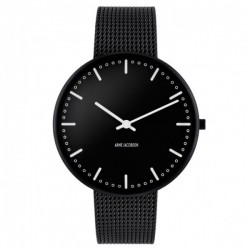Arne Jacobsen Bankers 40 Porsnunn Grey Polished & Brushed Steel bracelet
ICONIC DESIGN WITH PORSGRUNN GREY DIAL The iconic BANKERS clock was designed in 1971 and is proudly displayed on the original bank hall wall. The new BANKERS is inspired by the Norwegian Porsgrunn marble, one of Arne Jacobsen’s favorite materials. The dial is made with a circular fine-brushed finish, which gives the watch a slightly changing gray color, just like the Porsgrunn marble that fluctuates in several gray colors. The design stays true to Arne Jacobsen’s original clock design from 1971. The watch is available in two versions; a 40mm polished steel model and a 34mm polished gold model for smaller wrists.
PORSGRUNN GREY The dial is inspired by the Norwegian Porsgrunn marble, one of Arne Jacobsen’s favorite materials. The dial is made with a circular fine-brushed finish, which gives the watch a slightly changing gray color, just like the Porsgrunn marble that fluctuates in several gray colors. The design stays true to Arne Jacobsen’s original clock design from 1971. The watch is available in two versions; a 40mm polished steel model and a 34mm polished gold model for smaller wrists.
- Specifications
The dial is inspired by the Norwegian Porsgrunn marble, one of Arne Jacobsen’s favorite materials. The dial is made with a circular fine-brushed finish, which gives the watch a slightly changing gray color, just like the Porsgrunn marble that fluctuates in several gray colors. The design stays true to Arne Jacobsen’s original clock design from 1971. The watch is available in two versions; a 40mm polished steel model and a 34mm polished gold model for smaller wrists.
- Size Description
Size 40 mm
Strap Width 20 mm
-
Arne Jacobsen
<p>Arne Jacobsen (1902-1971) was trained as a bricklayer and graduated from The Technical Society's school in 1924 and Copenhagen Art Academy 1927. In 1928 he received the Academy's gold medal, but prior to this, when only 23, he was awarded a silver medal at the 1925 Paris World Exhibition - the first of numerous honours that became a natural accompaniment to his artistic activities, his untiring search and his brilliant conceptions, made manifest by many successes in competitions at home and abroad. His main works include: town halls in ?rhus, Søllerød, Rødovre and Glostrup, SAS-building (Royal Hotel) in Copenhagen, Munkegårds School in Gentofte, Toms Chocolate Factory in Ballerup, The Danish National Bank headquarters, a sports hall in Landskrona, St. Catherine's College, Oxford and Hamburgerische Elektrizitätswerke's administration building. In 1932, Arne Jacobsen began collaboration with Fritz Hansens Eft. A/S, and over a period of years designed a series of chairs which are now recognised as milestones in the development of modern furniture. They include "The Ant" (1951), "The Egg" (1957), and "The Swann"(1957). But he was also an innovator in other design fields, such as the tableware series "Cylinda-line" in stainless steel. Arne Jacobsen was a professor at the Art Academy, and received honorary doctorates from a number of foreign universities and academies. Cylinda-line was awarded the ID-prize 1967 by The Danish Society of Industrial Design and The International Design Award 1968 by The American Institute of Interior Designers.</p>


 EUR
EUR



